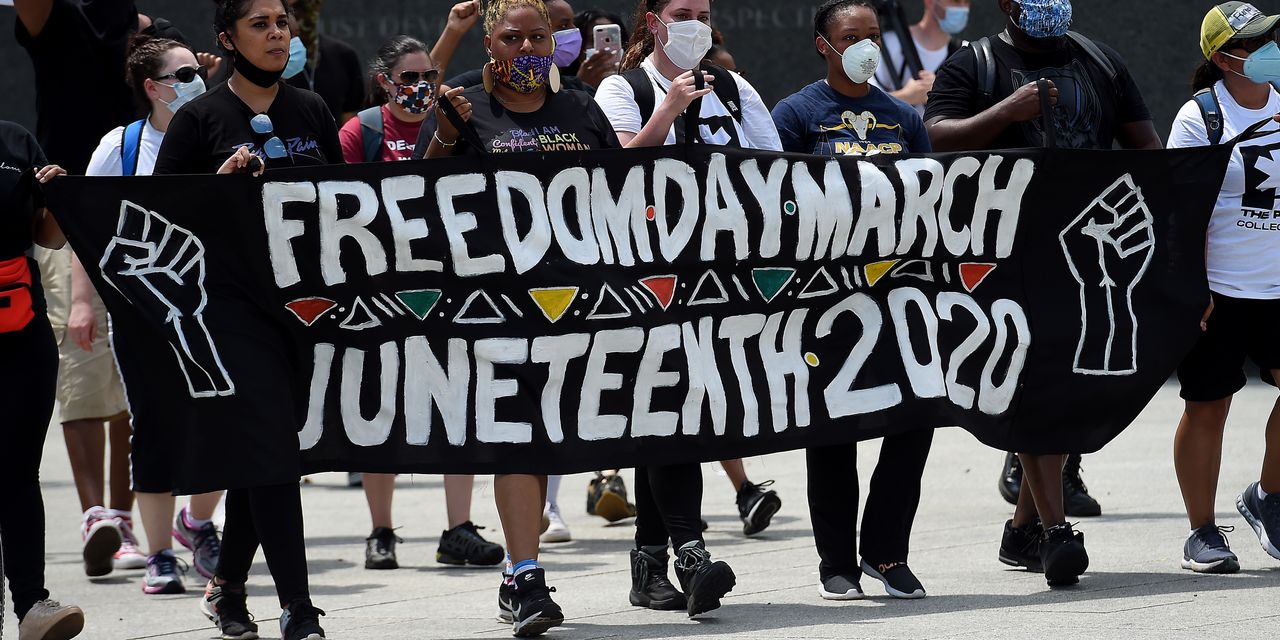
Juneteenth, a portmanteau of June 19, is a holiday that honors the end of slavery in the United States.
On June 19, 1865, federal troops marched on Galveston, Texas, to take control of the state. Even though the Civil War had been over for two months, slavery remained in Texas.
See also: Nearly one in four teachers say they may quit by the end of the school year — here’s why
Union General Gordon Granger arrived in Texas and famously read General Orders No. 3, which stated, “The people of Texas are informed that, in accordance with a proclamation from the Executive of the United States, all slaves are free.”
That day came two and a half years after President Abraham Lincoln signed the Emancipation Proclamation on Jan. 1, 1863. Not all states immediately ended slavery when Lincoln signed the order, as it was signed in the middle of the Civil War.
See also: One year after George Floyd’s murder, fewer Americans say they support Black Lives Matter
While other dates — such as the Confederate Army’s surrender in the Civil War, the ratification of the 13th Amendment abolishing slavery, or the day Lincoln signed the Emancipation Proclamation — could similarly be viewed as the “end” of slavery, Juneteenth is the day most people associate with its conclusion.
This week, Juneteenth was made a federal holiday by Congress and President Biden — the Juneteenth holiday and will go into effect immediately.
See also: When does the Juneteenth holiday go into effect in stock and bond markets? It’s complicated
Most federal employees will get this Friday off, according to the U.S. Office of Personnel Management.
“As the 19th falls on a Saturday, most federal employees will observe the holiday tomorrow, June 18th,” the agency said in a tweet on Thursday.
Under the new legislation, the federal holiday will be known as Juneteenth National Independence Day.
Congress had not added a federal holiday since Martin Luther King Day in 1983.
Despite the U.S. recognizing Juneteenth as a federal holiday, a lot of Americans still don’t know what Juneteenth means. According to a recent Gallup survey, 28% of U.S. adults say they know “nothing at all” about Juneteenth.
See also: Spotify strikes $60 million podcast deal with Barstool’s ‘Call Her Daddy’
Awareness of the date also breaks along party lines. The survey found that 16% of Democrats know “nothing at all” about Juneteenth, compared with 45% of Republicans.
Juneteenth celebrations this Saturday may include religious services, educational events, family gatherings and festivals. Some areas of the country, including Kansas and Texas, have parades on Juneteenth.








